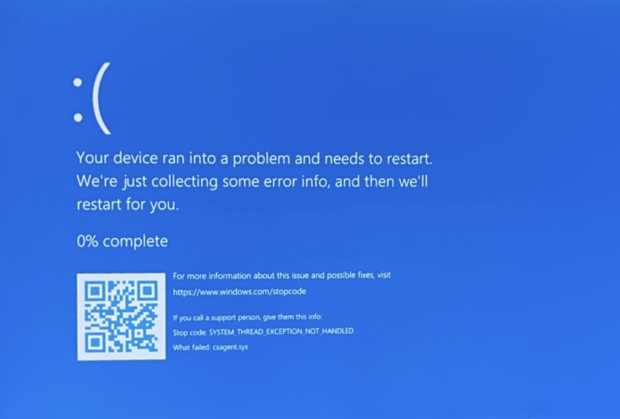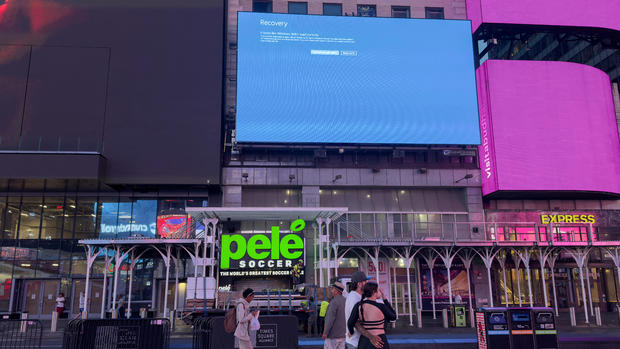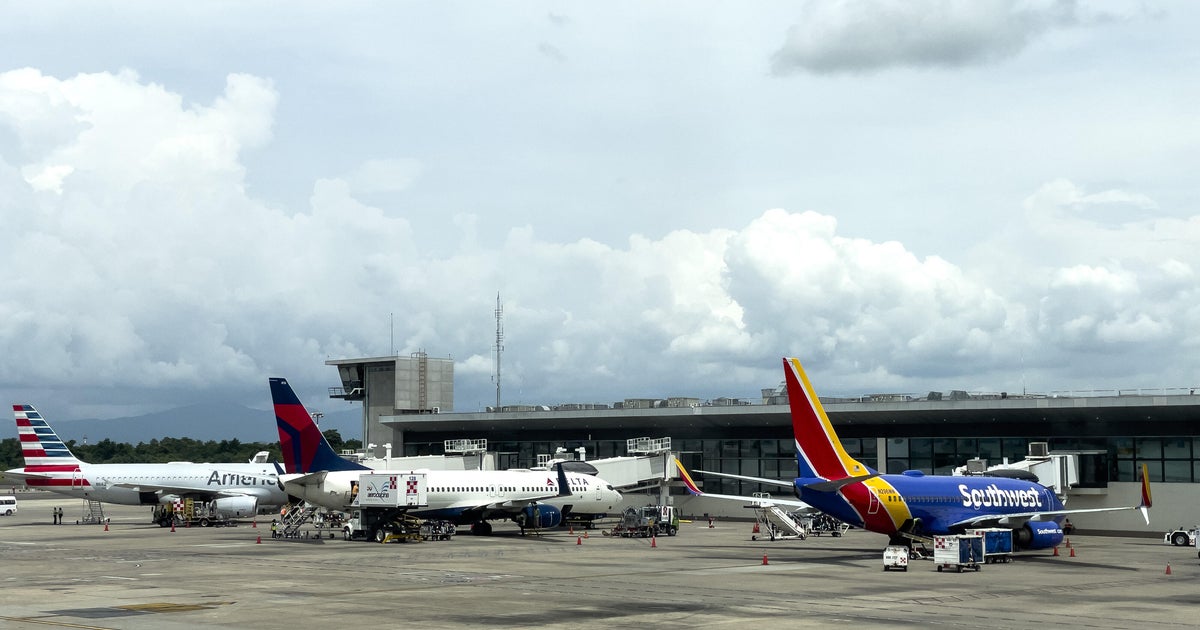What is Microsoft's "blue screen of death?" Here's what it means and how to fix it.
The Microsoft outage caused by a faulty CrowdStrike software update has caused the return of a familiar — and dreaded — screen for many Windows users: what has come to be known informally as the "blue screen of death," indicating that their computer systems are down.
The outage has affected consumers and businesses across the globe, including airlines, banks, health care providers, telecoms, retailers and even billboards in New York City's Times Square. The blue screens were visible on computer screens at multiple airports Friday, according to images shared on social media.
The screens, which have been around for decades, were designed for early Windows systems to display when users' operating systems glitched. Microsoft, which describes them as "blue screen errors" or STOP code errors, says the screen continues to be displayed "if a serious problem causes Windows to shut down or restart unexpectedly."
Friday's worldwide outage was caused by a technical problem that global cybersecurity firm CrowdStrike said it had identified in its software and was working to resolve. CrowdStrike provides antivirus software to Microsoft for its Windows devices.
In a post on X early Friday, Microsoft said its "previously impacted Microsoft 365 apps and services have recovered."
However, some customers responded that their computers were still displaying the blue screen.
How can I fix the blue screen of death?
In an earlier social media post, Microsoft said users can fix the blue screen of death by restoring their Windows 365 Cloud PC "to a known good state prior to the release of the update, or replacing the buggy version of Windows 365 with the system in use just before CloudStrike issued its faulty update.
Microsoft included a link to a page with instructions on how to restore Windows. Users are given choices of various restart points for their computers that range from four hours to 24 hours before the CloudStrike update.
In a separate update on its website, Microsoft also said users may encounter a bug check called BSOD, or blue screen of death, "and get stuck in a restarting state." In other words, the BSOD indicates that a computer has been knocked offline and that its operating system is not functional, sometimes forcing users into what can seem like a never-ending recovery loop before the PCs start properly again.
Experts also advise users to run "Windows Update" to make sure they're using the latest software fixes. If the blue screen error persists, Microsoft recommends the following steps:
In Windows, open Get Help.
In the Get Help app, type "Troubleshoot BSOD error."
Follow the guided walkthrough in the Get Help app
People who aren't using a Windows device can run the Blue Screen Troubleshooter on their browser by going to Contact Microsoft Support and typing "Troubleshoot BSOD error." That will lead to a guided walkthrough under "Recommended Help," according to Microsoft.
How long does it take to get rid of the blue screen?
Microsoft warned that its customers may have to reboot as many as 15 times before they're successful in restoring their computing systems.
Microsoft said some users have reported that they have been able to successfully reboot their machines.
"We have received reports of successful recovery from some customers attempting multiple Virtual Machine restart operations on affected Virtual Machines," the company said. It advises Windows users to log in to the Azure Portal, its cloud computing product, and to initiate a restart.









